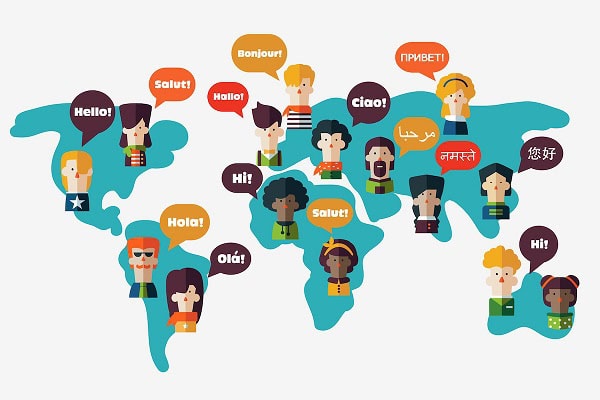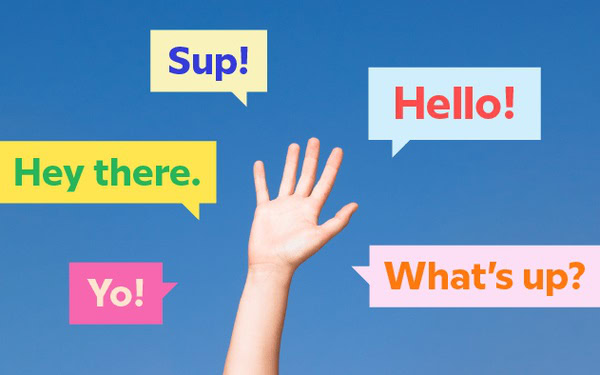Most of us have a common misconception that learning a new language is difficult. Perhaps if the benefits of learning a new language were highlighted, people would be more inclined to include it in their investment portfolio.
TAccording to a survey by a European Commission in 2012, 61% of British respondents do not speak a second language. They certainly missed the interesting fact that learning a foreign language increases wages by 5-15% – benefits both on and off the job.
Most of us are interested in learning the most applied language, but which one is really the easiest?

General principles
One way to understand this learning process is to put yourself in the shoes of a native English speaker. English is the most widely used, interconnected language among countries.
That is why English acts as a bridge between languages. About 50% of English words are of Latin or French origin. This is not surprising given that the structure, alphabet and general structure of English is similar to that of Spanish, Italian, French and other languages derived from Latin. So English is like a general rule.
>>> See more: 15 Most Popular Languages For Learners
So What Makes Language Easier to Learn?
Most languages have their own difficulty level. Some people find it very difficult to learn this language while others can learn it easily. There are different reasons for deciding how easy a language is to understand. Here are some key factors that make it easier for you to learn a language:
1. Motivation Inside You
If you want to succeed in learning any language, inner motivation is the most important role indispensable. No matter how “easy” the language you are learning is, you will not make any progress without enough motivation. Even if you're trying to learn something new from your own language, it's still going to be difficult without motivation. The “spirit of inquisitiveness” is the stimulating factor when having difficulty in learning a language.

2. Your Native Language
Earlier, we explored learning a language through the point of view of English. In general, the more closely your native language is related to the language you want to learn, the easier it will be to learn. For example, if Italian is your native language, you can easily learn French because they are made up of the same language family.
Similarly, if your native language is Norwegian, then Swedish will be like a pastry to you because they are so closely related. It is not surprising that the target language overlaps with the native language in terms of grammar, syntax, and vocabulary. This gives you a head start in learning your target language.
3. Your Second And Third Language
There is a second language in your family besides your mother tongue. This makes a big impact on how you perceive other languages. The more similar your target language is to your second and third languages, the easier it will be to learn. For example, when you know the nuances of your native language as well as master other languages, you will be off to a good start in learning your target language.

>>> See more: Commonly Used Languages In Europe Today
Which Language Is The Easiest Language to Learn?
Spanish is arguably the easiest language to learn. If you are a native English speaker, you will have no trouble learning Spanish pronunciation. Spanish has an uncomplicated orthographic structure (standards of spelling, hyphenation, capitalization, punctuation, word breaks). Most words are read the way they are written. So reading and writing Spanish is pretty straightforward.
Spanish has only 10 vowels and diphthongs, no strange phonemes except for the easy-to-pronounce letter ñ. This is precisely why Spanish is the easiest language to learn among other languages. Learning Spanish not only helps to upgrade your language treasure but it is also a bright spot in the eyes of employers. Typically, up to 37% of employers consider Spanish as an important language.
All in all, although learning a new language can be a daunting process, no language is as difficult as we imagine it to be. If you really want to communicate in multiple languages, what you need to do is to push yourself forward, making that language your own talent.
Happy learning!
Blog Sharing Translation Experiencest

Nguyen Trung Khang - Talented interpreter and translator, passionate about translation
Nguyen Trung Khang is a talented interpreter and translator, with many years of experience in the field of translation and linguistics. He graduated from Ho Chi Minh City University of Education, majoring in Linguistics in 2015.
After graduating, Mr. Khang participated in a professional interpretation and interpretation training course at the University of Foreign Languages - Hanoi National University. He achieved a high-level certificate in interpreting and interpreting, and was also awarded a master's degree in linguistics.